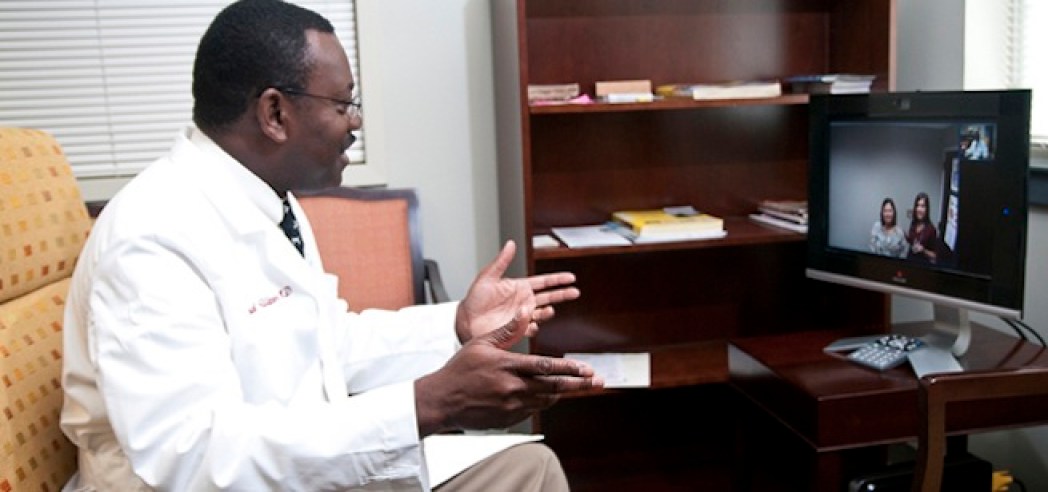In 2009, a startup known as Breakthrough announced it would make it cheap and easy for people to receive confidential counseling on the web. Three years later, with the upholding of healthcare reform, the startup has finally convinced angel investors to make a $900,000 bet that the shrink’s couch will go online.
[aditude-amp id="flyingcarpet" targeting='{"env":"staging","page_type":"article","post_id":507535,"post_type":"story","post_chan":"none","tags":null,"ai":false,"category":"none","all_categories":"business,entrepreneur,","session":"D"}']With some still attaching a stigma to mental health and therapy, few entrepreneurs have attempted to explore how technology can help deliver care. An estimated 54 million Americans have a diagnosable mental health condition, according to Mental Health America.
And yet, the company’s founders said that more Americans will admit to having a rectal disease than a mental illness.
AI Weekly
The must-read newsletter for AI and Big Data industry written by Khari Johnson, Kyle Wiggers, and Seth Colaner.
Included with VentureBeat Insider and VentureBeat VIP memberships.
Breakthrough works by connecting users with counselors via basic keyword search. You select a practitioner based on factors like specialty or location and confidentially set up a video conference. Breakthrough patients with health insurance can chat with any in-network providers on the site for $25 or less. If you don’t have insurance, or you’re not covered by companies such as Blue Shield or Magellan, expect to pay about $100 for an out-of-network appointment. On average, patients book five appointments on the site.
Telepsychiatry, or “therapy 2.0,” has been slow to evolve, but the founders say that it is beginning to take off. They won’t disclose the total number of users for confidentiality reasons, but Mark Goldenson, the site’s CEO and founder, revealed that the site is tripling its user-base each month.
Magellan, California’s largest health insurer, recently agreed to extend its coverage to Breakthrough. This may be enough to tip the scales. Now, 33 million more people across the U.S. may use the service to receive affordable counseling on the HIPAA compliant video platform, meaning that it will protect sensitive patient data.
Prior to starting the company, Goldenson counseled teens on a crisis hotline and worked as a project manager for PayPal. This year, the company graduated from StartX, the Stanford University-affiliated startup accelerator. It counts a handful of licensed practitioners among its advisors, including Dr. Morgan Sammons, dean of psychology at Alliant International University.
Goldenson said that they will use the funding to hire more engineers and invest in marketing to reach thousands of new users.
But is the world ready for telepyschiatry?
[aditude-amp id="medium1" targeting='{"env":"staging","page_type":"article","post_id":507535,"post_type":"story","post_chan":"none","tags":null,"ai":false,"category":"none","all_categories":"business,entrepreneur,","session":"D"}']
Maybe. Goldenson cites research from the American Psychological Association that 10 percent of psychologists chatted with patients through live video in 2008. It’s probably closer to 15% now. In addition, the VA Greater Los Angeles Healthcare System has run 550,000 virtual mental health visits since May 2011. It’s proven particularly useful in connecting with rural patients, and those who are reticent to book an in-person visit.
Another good sign is that therapists are increasingly using video conferencing tools like Voyager Telepyschiatry, LLC and Secure Telehealth to virtually connect with patients who are out of town or otherwise unable to make a regular in-person visit. Insurance doesn’t usually cover video chats, so patients would have to be willing to pay for this service themselves.
But some doctors have expressed concern that telemedicine is perilous and will increase the rate of misdiagnosis. The most conservative among them fear that telemedics will fail to notice telltale symptoms. The majority of medical experts fall somewhere in the middle; they would argue that a quick consultation with patients online can be beneficial, but these must be coupled with regular in-person checkups.
“There’s a difference between advice and treatment,” Lyle Berkowitz, a medical director of information technology and innovation at Northwestern Memorial Hospital’s primary care group in Chicago, told the Wall Street Journal in a recent review of telemedicine sites.
[aditude-amp id="medium2" targeting='{"env":"staging","page_type":"article","post_id":507535,"post_type":"story","post_chan":"none","tags":null,"ai":false,"category":"none","all_categories":"business,entrepreneur,","session":"D"}']
In the case of telepsychiatry, it seems even more likely that a therapist might miss the subtle signs of depression. Goldenson said that they have yet to encounter any issues, but the company has liability insurance just in case. “We have taken a risk-averse approach,” he said. On its website, Breakthrough cites findings from Harvard University that connecting with a patient online is as effective as an in-person visit, perhaps more so in the context of mental health.
Goldenson told me that the startup has no direct competitors. I hear this often, but in this case, it might actually be true. There is a deluge of online therapy services, but for the vast majority, users will have to pay out of pocket as health insurers won’t foot the bill.
It’s been an uphill battle for entrepreneurs attempting to digitize mental health. Barriers to entry are high. In Breakthrough’s case, the first step is to convince insurers to include online counseling in their plans. Venture capital investment will be a challenge, as investors are typically reluctant to pour funding into niche areas of healthcare.
Angel investors include PayPal Director and former eHealth executive Avery Kadison, Ash Patel and Mike Marquez of Morado Ventures, Square COO Keith Rabois, Charles River Ventures, PracticeFusion cofounder Matthew Douglass, and Invite Media cofounders Nat Turner and Zach Weinberg.
[aditude-amp id="medium3" targeting='{"env":"staging","page_type":"article","post_id":507535,"post_type":"story","post_chan":"none","tags":null,"ai":false,"category":"none","all_categories":"business,entrepreneur,","session":"D"}']
Top Image via University of Alabama
VentureBeat's mission is to be a digital town square for technical decision-makers to gain knowledge about transformative enterprise technology and transact. Learn More

